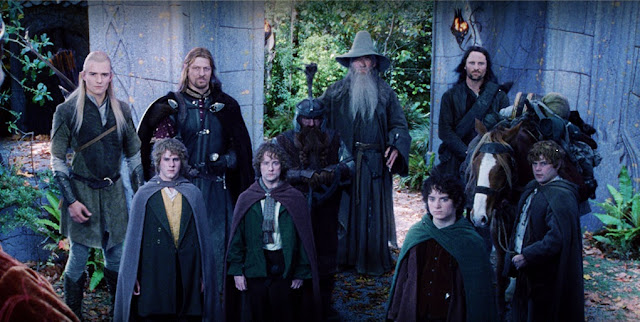Allegory
As for any inner meaning or 'message', it has in the intention of the author none. It is neither allegorical nor topical.
But I cordially dislike allegory in all its manifestations, and always have done so since I grew old and wary enough to detect its presence. I much prefer history, true or feigned, with its varied applicability to the thought and experience of readers. I think that many confuse 'applicability' with 'allegory'; but the one resides in the freedom of the reader, and the other in the purposed domination of the author.
I dislike Allegory - the conscious and intentional allegory - yet any attempt to explain the purport of myth or fairytale must use allegorical language.
The only perfectly consistent allegory is a real life; and the only fully intelligible story is an allegory. And one finds, even in imperfect human 'literature', that the better and more consistent an allegory is the more easily it can be read 'just as a story'; and the better and more closely woven a story is the more easily can those so minded find allegory in it.
Of course my story is not an allegory of Atomic power, but of Power (exerted for Domination).
A Soldier
I have in this War a burning private grudge — which would probably make me a better soldier at 49 than I was at 22: against that ruddy little ignoramus Adolf Hitler (for the odd thing about demonic inspiration and impetus is that it in no way enhances the purely intellectual stature: it chiefly affects the mere will). Ruining, perverting, misapplying, and making for ever accursed, that noble northern spirit, a supreme contribution to Europe, which I have ever loved, and tried to present in its true light.
Fantasy is escapist, and that is its glory. If a soldier is imprisoned by the enemy, don't we consider it his duty to escape?. . .If we value the freedom of mind and soul, if we're partisans of liberty, then it's our plain duty to escape, and to take as many people with us as we can!
Fantasy Races
Hobbits
I am in fact a Hobbit, in all but size. I like gardens, trees, and unmechanized farmlands; I smoke a pipe, and like good plain food (unrefrigerated), but detest French cooking; I like, and even dare to wear in these dull days, ornamental waistcoats. I am fond of mushrooms (out of a field); have a very simple sense of humour (which even my appreciative critics find tiresome); I go to bed late and get up late (when possible). I do not travel much.
The Hobbits are just rustic English people, made small in size because it reflects the generally small reach of their imagination.
Elves
The love of the Elves for their land and their works is deeper than the deeps of the Sea, and their regret is undying and cannot ever wholly be assuaged.
The dwarves of course are quite obviously - wouldn't you say that in many ways they remind you of the Jews? Their words are Semitic obviously, constructed to be Semitic.
I do think of the 'Dwarves' like Jews, at once native and alien in their habitations, speaking the languages of the country, but with an accent due to their own private tongue.
Orcs
(The Orcs are) sallow-skinned, with wide mouths and slant eyes: in fact degraded and repulsive versions (to Europeans) of the least lovely Mongol-types.
The Lord Of The Rings
The Lord of the Rings is of course a fundamentally religious and Catholic work; unconsciously so at first, but consciously in the revision.
Middle-earth is our world. I have (of course) placed the action in a purely imaginary (though not wholly impossible) period of antiquity, in which the shape of the continental masses was different.
And some things that should not have been forgotten were lost. History became legend. Legend became myth. And for two and a half thousand years, the ring passed out of all knowledge.









